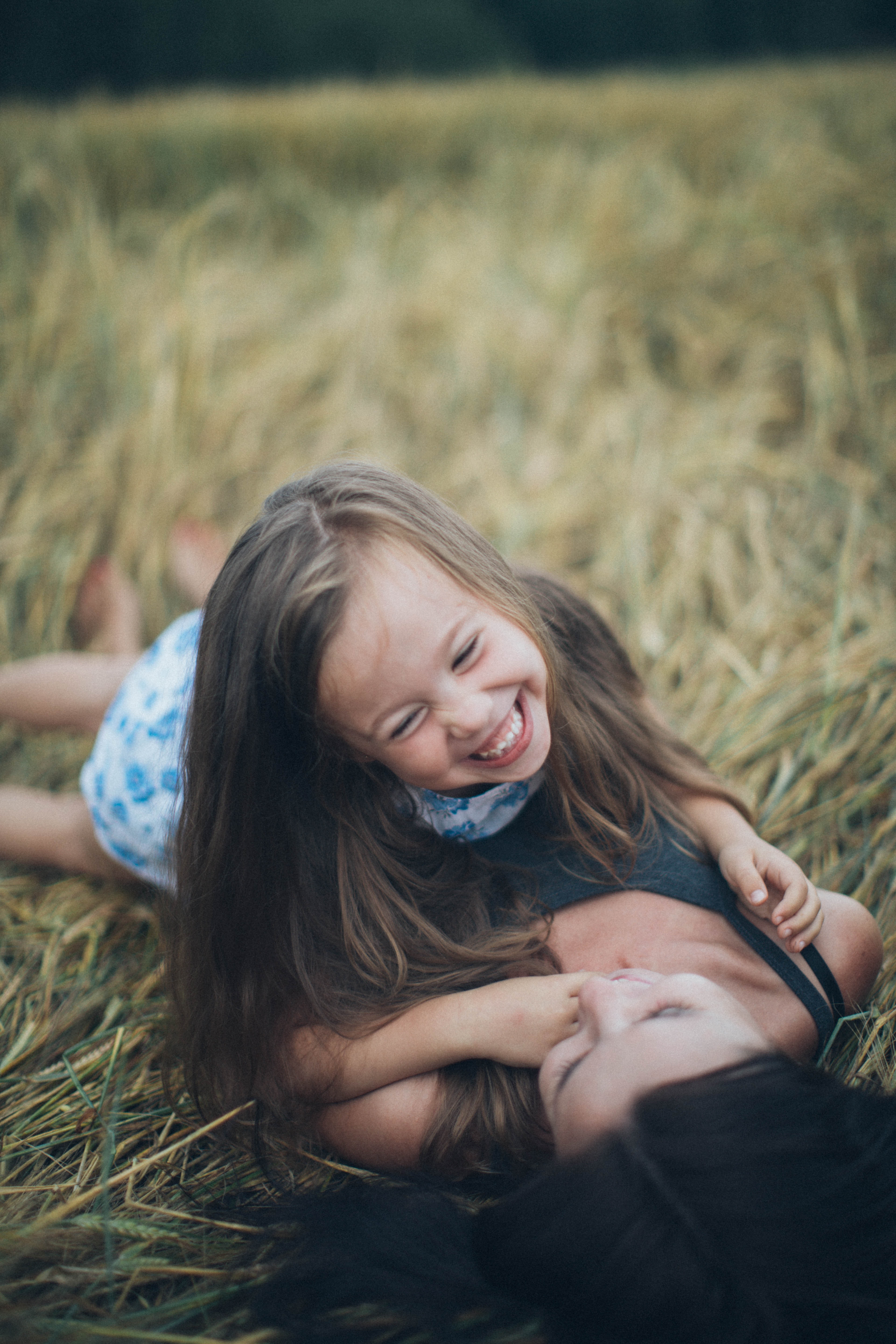CHIC MOM CLUB
Where Lifestyle and Motherhood Intertwine.

Helping Your Toddler Develop Healthy Hygiene Habits
Instilling healthy hygiene habits in toddlers is a vital step in ensuring their overall well-being and helping them establish routines that will last a lifetime. While toddlers may not fully grasp the importance of hygiene, teaching them early can make daily routines like handwashing, brushing teeth, and bath time fun and easy. Here are practical tips for teaching your toddler healthy hygiene habits that will set the foundation for their lifelong self-care.
1. Start with Handwashing
Handwashing is one of the simplest and most effective ways to prevent the spread of germs. Teaching your toddler the importance of clean hands helps them develop a key hygiene habit.
Make it Fun: Use a fun song (like the "Happy Birthday" song twice) to show them how long to wash their hands. This makes it a playful, engaging routine instead of a chore.
Visual Cues: You can place step-by-step handwashing charts near the sink with pictures, showing your toddler what to do. These visual cues can help remind them of each step — from wetting their hands to drying them.
Practice Regularly: Teach your toddler to wash their hands after using the bathroom, before eating, and after playing outside. The more consistent you are, the quicker they will pick up the habit.
2. Teach Proper Teeth Brushing
Good oral hygiene starts early. Even though your toddler’s teeth are small, it’s important to teach them how to brush properly.
Choose Fun Toothbrushes: Let your toddler pick out a toothbrush with their favorite character or in a fun color. This makes brushing more exciting and gives them a sense of ownership over their routine.
Use Kid-Friendly Toothpaste: Toddlers often resist brushing if they don’t like the taste of the toothpaste. Opt for a toddler-safe, fluoride-free toothpaste with a mild or fruity flavor to make the experience more enjoyable.
Show Them How: Brush your teeth alongside your toddler to show them how it's done. Explain the process in simple steps, such as “brush in small circles” and “don’t forget the back teeth.” You can guide their hands initially and slowly let them take over.
3. Make Bath Time a Learning Experience
Bathing is more than just getting clean — it’s a great opportunity to teach your toddler how to care for their body.
Teach Body Parts: During bath time, you can use this opportunity to name body parts while your toddler washes them. It’s an educational moment wrapped in a fun, splashing activity.
Bath Toys: Use fun bath toys or colorful bath books to make bath time enjoyable. These distractions can keep them engaged while they wash their body and hair.
Teach Independent Skills: Start by allowing your toddler to wash their own hands, face, and body with supervision. Gradually, they’ll become more confident in doing it independently. Encouraging them to take ownership of their cleanliness can boost their self-confidence.
4. Focus on Nail Care
Keeping your toddler’s nails short and clean is important for preventing the spread of germs and dirt.
Teach Why It’s Important: Toddlers are naturally curious, so explaining that short nails prevent dirt and germs from getting under them can be motivating. Let them know it helps keep them healthy!
Create a Routine: Establish a regular nail-trimming schedule, such as after bath time when nails are softer. Over time, they’ll understand that nail care is a part of their overall hygiene routine.
Use Child-Friendly Tools: Child-friendly nail clippers are a good investment, as they are designed with toddlers in mind, minimizing any fear or discomfort.
5. Incorporate Hygiene into Potty Training
As your toddler learns to use the potty, this is a great time to instill cleanliness practices.
Wipe Front to Back: Teach toddlers the correct way to wipe after using the toilet, especially for girls, to prevent infections. You can guide their hand or demonstrate with a stuffed animal or toy.
Handwashing After Potty Time: Reinforce the habit of washing hands every time they use the potty. Make sure your toddler knows this is a non-negotiable part of using the bathroom.
Positive Reinforcement: Praise your toddler when they successfully clean up after using the potty. Positive reinforcement, such as stickers or high-fives, can encourage them to maintain good hygiene.
6. Make Hair Care Simple
Hair care is another important part of your toddler’s hygiene routine, but it doesn’t have to be complicated.
Use Gentle Products: Choose shampoos and conditioners that are gentle on your toddler’s hair and scalp. This helps prevent irritation and makes hair-washing more pleasant.
Teach Brushing: Show your toddler how to gently brush their hair to remove tangles. You can make it a bonding moment by brushing your hair together in the morning or before bed.
Set a Routine: Depending on their hair type, establish a routine for washing and brushing hair. Some toddlers may need more frequent washing, while others may benefit from a simple detangling routine each day.
7. Encourage Clean Clothes
Wearing clean clothes is a fundamental hygiene habit that toddlers can learn early on.
Pick Out Clothes Together: Allow your toddler to help pick out clean clothes for the day. This gives them a sense of independence and teaches them the importance of putting on fresh clothes.
Teach the Difference: Use simple explanations to help your toddler understand the difference between clean and dirty clothes. For example, "We put dirty clothes in the laundry basket so they can be washed."
8. Model Good Hygiene Habits
One of the most effective ways to teach your toddler healthy hygiene habits is by modeling them yourself. Children often learn by watching and imitating adults, so let them see you practicing good hygiene.
Brush Your Teeth Together: Make toothbrushing a family activity, showing your toddler that everyone values clean teeth.
Wash Hands with Them: Wash your hands together before meals and after playtime. Lead by example, and they’ll follow suit.
Praise Their Efforts: Whenever your toddler practices good hygiene, praise them for their efforts. This positive reinforcement will help them feel proud of their habits and encourage them to keep up with their routines.
Teaching your toddler healthy hygiene habits is an important part of their development and overall well-being. With consistent practice, engaging activities, and positive reinforcement, you can help your child learn the value of cleanliness in a fun, stress-free way. By starting early and making hygiene routines enjoyable, you’re setting the foundation for a lifetime of good habits that will keep them healthy and happy.
One or more of the links above are affiliate links, meaning, at no additional cost to you, we will earn a slight commission if you click through and make a purchase. Each of these products is chosen by a trusted member of our team.

Helping Your Toddler Develop Healthy Hygiene Habits
Instilling healthy hygiene habits in toddlers is a vital step in ensuring their overall well-being and helping them establish routines that will last a lifetime. While toddlers may not fully grasp the importance of hygiene, teaching them early can make daily routines like handwashing, brushing teeth, and bath time fun and easy. Here are practical tips for teaching your toddler healthy hygiene habits that will set the foundation for their lifelong self-care.
1. Start with Handwashing
Handwashing is one of the simplest and most effective ways to prevent the spread of germs. Teaching your toddler the importance of clean hands helps them develop a key hygiene habit.
Make it Fun: Use a fun song (like the "Happy Birthday" song twice) to show them how long to wash their hands. This makes it a playful, engaging routine instead of a chore.
Visual Cues: You can place step-by-step handwashing charts near the sink with pictures, showing your toddler what to do. These visual cues can help remind them of each step — from wetting their hands to drying them.
Practice Regularly: Teach your toddler to wash their hands after using the bathroom, before eating, and after playing outside. The more consistent you are, the quicker they will pick up the habit.
2. Teach Proper Teeth Brushing
Good oral hygiene starts early. Even though your toddler’s teeth are small, it’s important to teach them how to brush properly.
Choose Fun Toothbrushes: Let your toddler pick out a toothbrush with their favorite character or in a fun color. This makes brushing more exciting and gives them a sense of ownership over their routine.
Use Kid-Friendly Toothpaste: Toddlers often resist brushing if they don’t like the taste of the toothpaste. Opt for a toddler-safe, fluoride-free toothpaste with a mild or fruity flavor to make the experience more enjoyable.
Show Them How: Brush your teeth alongside your toddler to show them how it's done. Explain the process in simple steps, such as “brush in small circles” and “don’t forget the back teeth.” You can guide their hands initially and slowly let them take over.
3. Make Bath Time a Learning Experience
Bathing is more than just getting clean — it’s a great opportunity to teach your toddler how to care for their body.
Teach Body Parts: During bath time, you can use this opportunity to name body parts while your toddler washes them. It’s an educational moment wrapped in a fun, splashing activity.
Bath Toys: Use fun bath toys or colorful bath books to make bath time enjoyable. These distractions can keep them engaged while they wash their body and hair.
Teach Independent Skills: Start by allowing your toddler to wash their own hands, face, and body with supervision. Gradually, they’ll become more confident in doing it independently. Encouraging them to take ownership of their cleanliness can boost their self-confidence.
4. Focus on Nail Care
Keeping your toddler’s nails short and clean is important for preventing the spread of germs and dirt.
Teach Why It’s Important: Toddlers are naturally curious, so explaining that short nails prevent dirt and germs from getting under them can be motivating. Let them know it helps keep them healthy!
Create a Routine: Establish a regular nail-trimming schedule, such as after bath time when nails are softer. Over time, they’ll understand that nail care is a part of their overall hygiene routine.
Use Child-Friendly Tools: Child-friendly nail clippers are a good investment, as they are designed with toddlers in mind, minimizing any fear or discomfort.
5. Incorporate Hygiene into Potty Training
As your toddler learns to use the potty, this is a great time to instill cleanliness practices.
Wipe Front to Back: Teach toddlers the correct way to wipe after using the toilet, especially for girls, to prevent infections. You can guide their hand or demonstrate with a stuffed animal or toy.
Handwashing After Potty Time: Reinforce the habit of washing hands every time they use the potty. Make sure your toddler knows this is a non-negotiable part of using the bathroom.
Positive Reinforcement: Praise your toddler when they successfully clean up after using the potty. Positive reinforcement, such as stickers or high-fives, can encourage them to maintain good hygiene.
6. Make Hair Care Simple
Hair care is another important part of your toddler’s hygiene routine, but it doesn’t have to be complicated.
Use Gentle Products: Choose shampoos and conditioners that are gentle on your toddler’s hair and scalp. This helps prevent irritation and makes hair-washing more pleasant.
Teach Brushing: Show your toddler how to gently brush their hair to remove tangles. You can make it a bonding moment by brushing your hair together in the morning or before bed.
Set a Routine: Depending on their hair type, establish a routine for washing and brushing hair. Some toddlers may need more frequent washing, while others may benefit from a simple detangling routine each day.
7. Encourage Clean Clothes
Wearing clean clothes is a fundamental hygiene habit that toddlers can learn early on.
Pick Out Clothes Together: Allow your toddler to help pick out clean clothes for the day. This gives them a sense of independence and teaches them the importance of putting on fresh clothes.
Teach the Difference: Use simple explanations to help your toddler understand the difference between clean and dirty clothes. For example, "We put dirty clothes in the laundry basket so they can be washed."
8. Model Good Hygiene Habits
One of the most effective ways to teach your toddler healthy hygiene habits is by modeling them yourself. Children often learn by watching and imitating adults, so let them see you practicing good hygiene.
Brush Your Teeth Together: Make toothbrushing a family activity, showing your toddler that everyone values clean teeth.
Wash Hands with Them: Wash your hands together before meals and after playtime. Lead by example, and they’ll follow suit.
Praise Their Efforts: Whenever your toddler practices good hygiene, praise them for their efforts. This positive reinforcement will help them feel proud of their habits and encourage them to keep up with their routines.
Teaching your toddler healthy hygiene habits is an important part of their development and overall well-being. With consistent practice, engaging activities, and positive reinforcement, you can help your child learn the value of cleanliness in a fun, stress-free way. By starting early and making hygiene routines enjoyable, you’re setting the foundation for a lifetime of good habits that will keep them healthy and happy.
One or more of the links above are affiliate links, meaning, at no additional cost to you, we will earn a slight commission if you click through and make a purchase. Each of these products is chosen by a trusted member of our team.

Helping Your Toddler Develop Healthy Hygiene Habits
Instilling healthy hygiene habits in toddlers is a vital step in ensuring their overall well-being and helping them establish routines that will last a lifetime. While toddlers may not fully grasp the importance of hygiene, teaching them early can make daily routines like handwashing, brushing teeth, and bath time fun and easy. Here are practical tips for teaching your toddler healthy hygiene habits that will set the foundation for their lifelong self-care.
1. Start with Handwashing
Handwashing is one of the simplest and most effective ways to prevent the spread of germs. Teaching your toddler the importance of clean hands helps them develop a key hygiene habit.
Make it Fun: Use a fun song (like the "Happy Birthday" song twice) to show them how long to wash their hands. This makes it a playful, engaging routine instead of a chore.
Visual Cues: You can place step-by-step handwashing charts near the sink with pictures, showing your toddler what to do. These visual cues can help remind them of each step — from wetting their hands to drying them.
Practice Regularly: Teach your toddler to wash their hands after using the bathroom, before eating, and after playing outside. The more consistent you are, the quicker they will pick up the habit.
2. Teach Proper Teeth Brushing
Good oral hygiene starts early. Even though your toddler’s teeth are small, it’s important to teach them how to brush properly.
Choose Fun Toothbrushes: Let your toddler pick out a toothbrush with their favorite character or in a fun color. This makes brushing more exciting and gives them a sense of ownership over their routine.
Use Kid-Friendly Toothpaste: Toddlers often resist brushing if they don’t like the taste of the toothpaste. Opt for a toddler-safe, fluoride-free toothpaste with a mild or fruity flavor to make the experience more enjoyable.
Show Them How: Brush your teeth alongside your toddler to show them how it's done. Explain the process in simple steps, such as “brush in small circles” and “don’t forget the back teeth.” You can guide their hands initially and slowly let them take over.
3. Make Bath Time a Learning Experience
Bathing is more than just getting clean — it’s a great opportunity to teach your toddler how to care for their body.
Teach Body Parts: During bath time, you can use this opportunity to name body parts while your toddler washes them. It’s an educational moment wrapped in a fun, splashing activity.
Bath Toys: Use fun bath toys or colorful bath books to make bath time enjoyable. These distractions can keep them engaged while they wash their body and hair.
Teach Independent Skills: Start by allowing your toddler to wash their own hands, face, and body with supervision. Gradually, they’ll become more confident in doing it independently. Encouraging them to take ownership of their cleanliness can boost their self-confidence.
4. Focus on Nail Care
Keeping your toddler’s nails short and clean is important for preventing the spread of germs and dirt.
Teach Why It’s Important: Toddlers are naturally curious, so explaining that short nails prevent dirt and germs from getting under them can be motivating. Let them know it helps keep them healthy!
Create a Routine: Establish a regular nail-trimming schedule, such as after bath time when nails are softer. Over time, they’ll understand that nail care is a part of their overall hygiene routine.
Use Child-Friendly Tools: Child-friendly nail clippers are a good investment, as they are designed with toddlers in mind, minimizing any fear or discomfort.
5. Incorporate Hygiene into Potty Training
As your toddler learns to use the potty, this is a great time to instill cleanliness practices.
Wipe Front to Back: Teach toddlers the correct way to wipe after using the toilet, especially for girls, to prevent infections. You can guide their hand or demonstrate with a stuffed animal or toy.
Handwashing After Potty Time: Reinforce the habit of washing hands every time they use the potty. Make sure your toddler knows this is a non-negotiable part of using the bathroom.
Positive Reinforcement: Praise your toddler when they successfully clean up after using the potty. Positive reinforcement, such as stickers or high-fives, can encourage them to maintain good hygiene.
6. Make Hair Care Simple
Hair care is another important part of your toddler’s hygiene routine, but it doesn’t have to be complicated.
Use Gentle Products: Choose shampoos and conditioners that are gentle on your toddler’s hair and scalp. This helps prevent irritation and makes hair-washing more pleasant.
Teach Brushing: Show your toddler how to gently brush their hair to remove tangles. You can make it a bonding moment by brushing your hair together in the morning or before bed.
Set a Routine: Depending on their hair type, establish a routine for washing and brushing hair. Some toddlers may need more frequent washing, while others may benefit from a simple detangling routine each day.
7. Encourage Clean Clothes
Wearing clean clothes is a fundamental hygiene habit that toddlers can learn early on.
Pick Out Clothes Together: Allow your toddler to help pick out clean clothes for the day. This gives them a sense of independence and teaches them the importance of putting on fresh clothes.
Teach the Difference: Use simple explanations to help your toddler understand the difference between clean and dirty clothes. For example, "We put dirty clothes in the laundry basket so they can be washed."
8. Model Good Hygiene Habits
One of the most effective ways to teach your toddler healthy hygiene habits is by modeling them yourself. Children often learn by watching and imitating adults, so let them see you practicing good hygiene.
Brush Your Teeth Together: Make toothbrushing a family activity, showing your toddler that everyone values clean teeth.
Wash Hands with Them: Wash your hands together before meals and after playtime. Lead by example, and they’ll follow suit.
Praise Their Efforts: Whenever your toddler practices good hygiene, praise them for their efforts. This positive reinforcement will help them feel proud of their habits and encourage them to keep up with their routines.
Teaching your toddler healthy hygiene habits is an important part of their development and overall well-being. With consistent practice, engaging activities, and positive reinforcement, you can help your child learn the value of cleanliness in a fun, stress-free way. By starting early and making hygiene routines enjoyable, you’re setting the foundation for a lifetime of good habits that will keep them healthy and happy.
One or more of the links above are affiliate links, meaning, at no additional cost to you, we will earn a slight commission if you click through and make a purchase. Each of these products is chosen by a trusted member of our team.

ABOUT US
At Chic Mom Club we are dedicated to inspiring and empowering modern moms everywhere. Our mission is to help moms elevate their daily routines and live their best lives through sharing helpful tips, engaging stories, and practical advice. From fashion and beauty to home decor and family travel, we cover all aspects of the mom lifestyle.
- Chic Mom Club
CATEGORIES
WHO WE ARE

CONFIDENCE
Chic Mom Club is a lifestyle blog dedicated to inspiring and empowering modern moms everywhere.

COMMUNITY
Our mission is to help moms elevate their daily routines and live their best lives through sharing helpful tips, engaging stories, and practical advice.

MOTHERHOOD
From fashion and beauty to home decor and family travel, we cover all aspects of the mom lifestyle.
JOIN THE CLUB
New posts each week,
tailored to moms.
Copyright 2024 - Chic Mom Club


